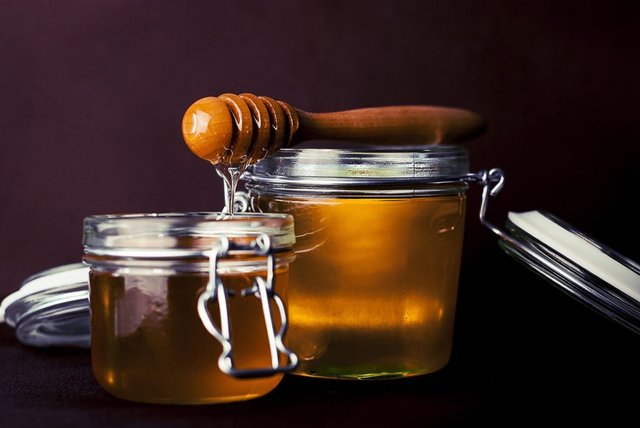Study: Dangerous Pesticide Found in 75 Percent of Global Honey

A new study has found traces of a controversial pesticide in 75 percent of the world’s honey.
A new study published in the journal Science detected at least one variety of a harmful pesticide in 75 percent of honey around the world. The study, “A worldwide survey of neonicotinoids in honey,” examined 198 types of honey from around the world looking for traces of neonicotinoids, a pesticide suspected of harming the honey bee population. Of the 75 percent containing neonicotinoids, 30 percent contained one neonic, 45 percent contained two or more, and 10 percent had four or five.
The neonicotinoids are a class of pesticide that has been linked to declines in bee populations. Neonics were developed in 1991 and commercial use began in the mid-1990s. Around 2006, commercial beekeepers began reporting what is now known as colony collapse disorder — where entire colonies of bees die off with no obvious cause. The disorder has been reported in commercial colonies all over the world. Several studies have implicated neonics, which are used to kill insects harmful to crops.
“The fact that 45% of our samples showed multiple contaminations is worrying and indicates that bee populations throughout the world are exposed to a cocktail of neonicotinoids,” the researchers wrote. “The effects of exposure to multiple pesticides, which have only recently started to be explored, are suspected to be stronger than the sum of individual effects. This worldwide description of the situation should be useful for decision-makers to reconsider the risks and benefits of using neonicotinoids and provides scientists an inventory of the most frequent combinations of neonicotinoids found in honey.”
The study also found that 34 percent of the honey samples contained “concentrations of neonicotinoids that are known to be detrimental” to bees and pose a threat to their survival.
Chris Connolly, a neurobiology expert at the University of Dundee, told Phys.org that the findings were “alarming” and that the amount of neonicotinoids detected “are sufficient to affect bee brain function and may hinder their ability to forage on, and pollinate, our crops and our native plants.”
After years of back-and-forth speculation and conflicting studies from countries around the world, it seems fair to say neonicotinoids insecticides are causing dramatic weakening of honeybee hives. In June, two new studies confirmed the danger of the class of pesticide.
The first study involved researchers in Hungary, Britain, and Germany planting fields of rapeseed, which is commonly used as a cooking oil. Some of the fields were sown with seeds treated with neonicotinoids while others were planted with untreated seeds. The teams studied the bees from spring 2015 until the following spring. The study, “Country-specific effects of neonicotinoid pesticides on honey bees and wild bees,” was published in the journal Science. “These findings point to neonicotinoids causing a reduced capacity of bee species to establish new populations in the year following exposure,” the researchers write.
A second study published in Science looked at Canadian corn farms and also reached this conclusion. Researchers at York University in Canada found that wild bees are not only exposed to neonics via spraying, but also through wildflowers. “This indicates that neonicotinoids, which are water soluble, spill over from fields into the surrounding environment, where they are taken up by other plants that are very attractive to bees,” said Nadia Tsvetkov, lead researcher with York University.
Unfortunately, the dangers of neonicotinoids have been known for some time. A July 2016 study published in the journal Proceedings of the Royal Society B found that neonicotinoids do not kill drone honey bees, but instead drastically reduce the amount of live sperm produced by the male population. Researchers at Switzerland’s University of Bern found that the bees who ate pollen treated with neonicotinoids produced 39 percent less live sperm than the bees who did not eat the treated pollen.
In September 2015 a federal appeals court dealt a huge blow to the pesticide industry by issuing a ruling that blocks the use of neonics. The 9th U.S. Circuit Court of Appeals found that the U.S. EPA insufficiently tested the pesticide sulfoxaflor before approving its use in 2013. Sulfoxaflor is a type of neonicotinoid. Circuit Judge Mary Schroeder stated the EPA should have done further research once initial studies showed sulfoxaflor was highly toxic to honeybees.
What will it take for the chemical companies to end the use of their dangerous product? Should the people stand by and rely on the government to protect them, the environment, and the bees?
This article may be freely reposted in part or in full with author attribution and source link.
Image Credit: Pixabay
I am an investigative journalist and liberty activist; a Lead Investigative Reporter for ActivistPost.com and the founder of the TheConsciousResistance.com & The Houston Free Thinkers. I have also co-authored three books with @johnvibes: The Conscious Resistance: Reflections on Anarchy and Spirituality and Finding Freedom in an Age of Confusion, Vol. 1 and Finding Freedom in an Age of Confusion, Vol. 2
Donate via Bitcoin: 16fDdrZvt9XUv7TyboSYtaHfcxMb22Yiew
I am always available for interviews, Please contact [email protected]
I greatly appreciate any support here or on my other social media:

Finally a court does something good!
Thanks for the post, it was informative and a little scary.
Keep Steeming!
p.s. I'll upvote you when my power comes back up enough to be effective. Resteemed for now.
We should absolutely not stand around and wait for this problem to be solved. This is not only effecting bee's on farms but wild bees which are integral to all ecosystems! This needs to be solved now, asap, much faster then the court or the government can solve it. At least, we need to spread awareness and continue the plight against pestacide companies.
So few people understand how dependent we are on insects, particularly bees, for our survival.
Without bees pollinating our crops, worldwide famine would result, and an unimaginable number of people would die. Many other insects, performing far less savory services, such as destroying pests, or creating soil from organic residues (dead things), are equally as essential, though none of them make such tasty treats as honey.
Agricultural chemicals, though having increased agricultural production to unprecedented levels, are constantly being revealed in independent research to cause unanticipated problems in ecosystems, and to human health.
The main problem with GMO's isn't the actual DNA changes they undergo, nor the mechanisms used to alter them, but the fact they are engineered to resist higher doses of herbicides, such as RoundUp, and Xtend, which are then applied to those crops at higher levels, producing higher levels of pollution in the environment, and in our bodies.
Glyphosate, the active ingredient in RoundUp, is now found in the cord blood of newborns - who have never been directly dosed with herbicides while in the womb.
While eventually better science will produce better means of increasing yields, we need stronger controls on how chemicals are introduced into the environment RIGHT NOW. We are swimming in a toxic soup that has never been an evolutionary force before.
The rising incidence of cancer, linked to nuclear contamination, the 60% decrease in male fertility, linked to endocrine disrupting chemical pollution, and on and on, really should alarm us.
The sad fact is that the rate of introduction of novel toxins into the environment - and our bodies - is increasing at practically exponential rates today, and this may prove to be an existential threat to survival, not only of bees, but people.
Thanks!
Thanks! I haven't had honey in ages because of the sugar content but was going to treat myself before Christmas but you've ruined that. But thanks for the tip saves me in the long run!
Pesticides are so dangerous and one of the biggest factors in developing cancer